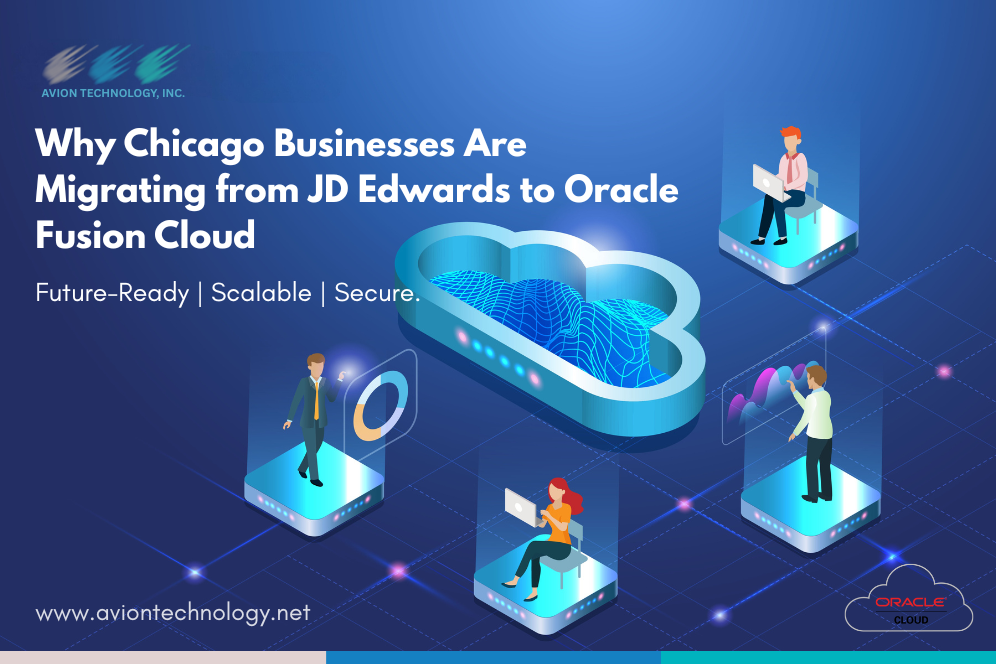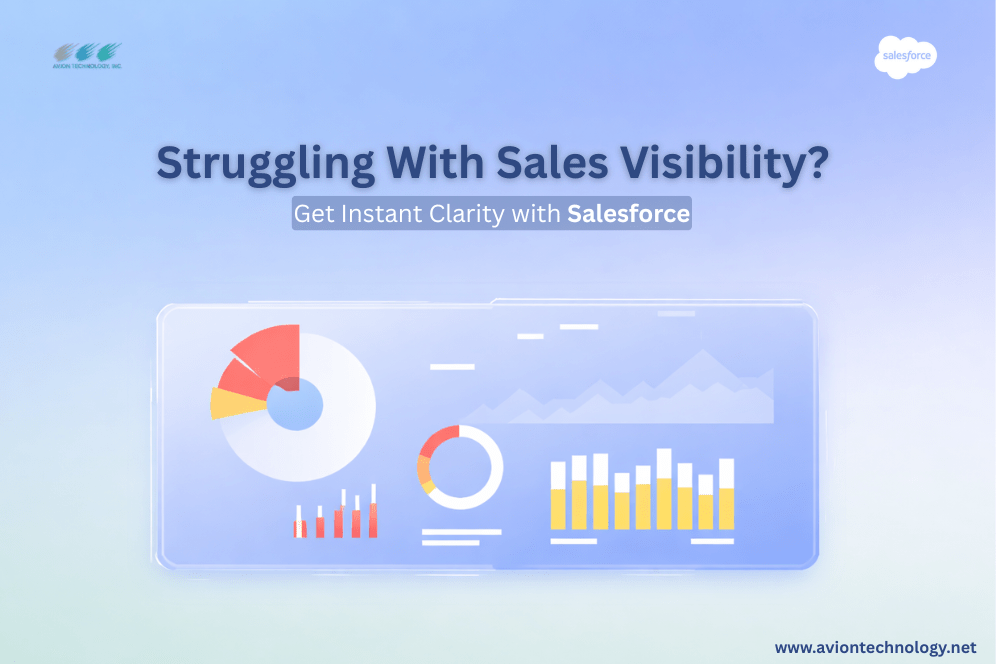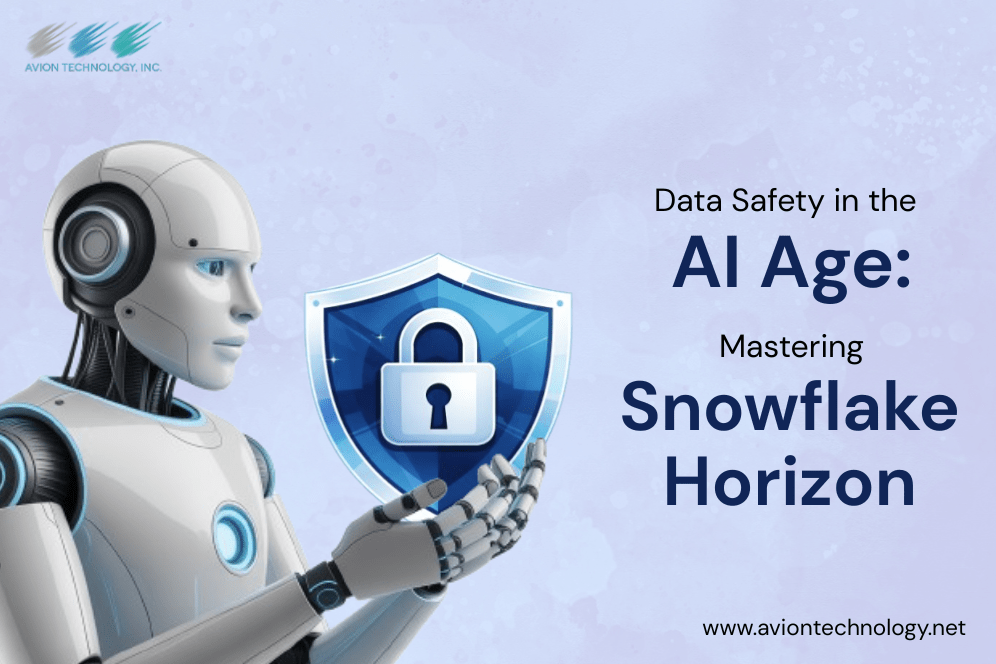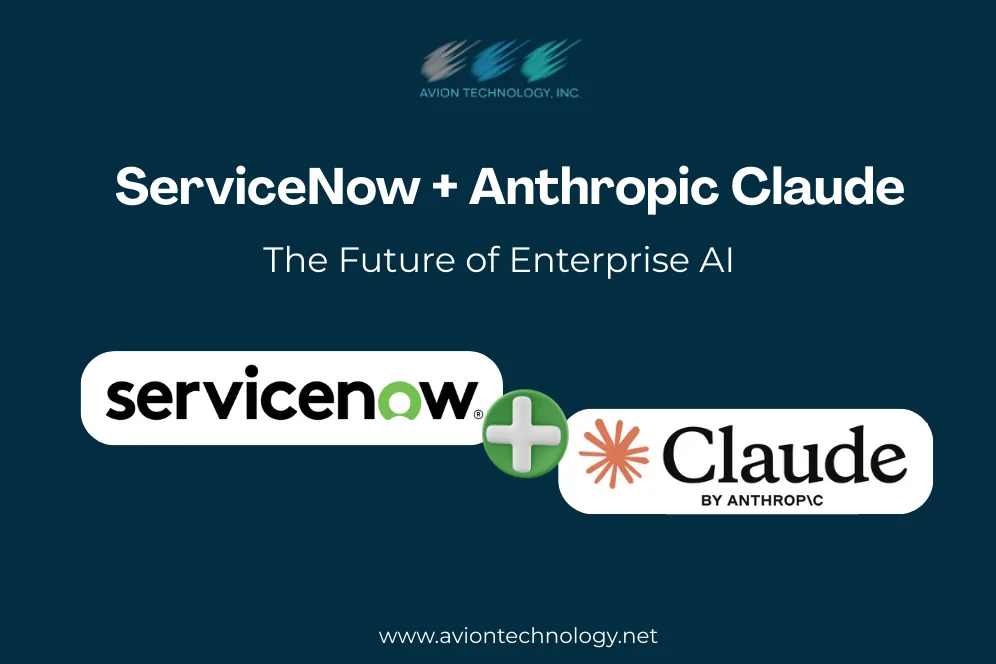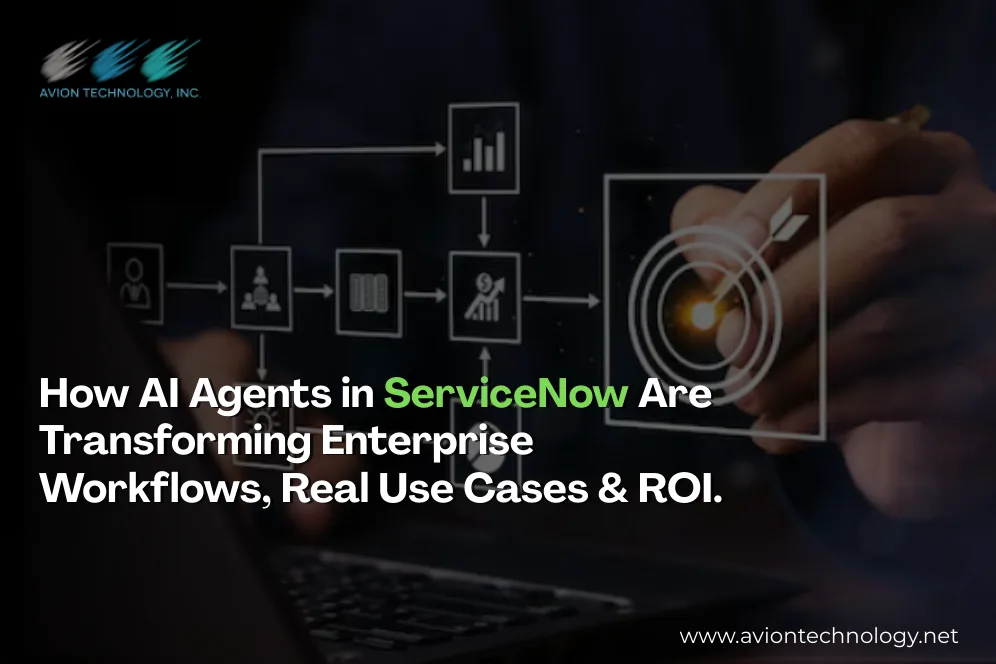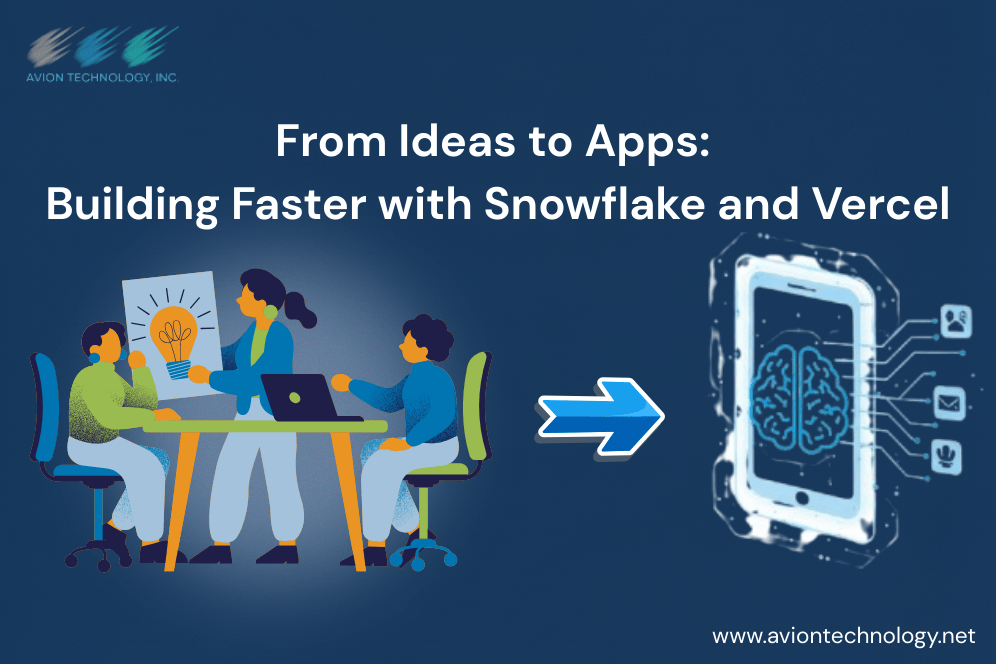In an era of digital acceleration, Chicago-based businesses from manufacturing to education to healthcare are rethinking their legacy ERP systems. Among those, JD Edwards has served many well over the years, but increasingly companies are moving toward Oracle Fusion Cloud. What’s pushing this migration, and what should decision-makers in Chicago know before making the leap?
What’s Driving the Move from JD Edwards
- Reduced Total Cost of Ownership (TCO)
Running JD Edwards on-premises often involves high capital expense (servers, data centers, hardware maintenance), plus staffing and support cost. Oracle’s cloud model shifts many of those costs into predictable operational expenses. Studies show migrating to Oracle Cloud Infrastructure (OCI) can yield 30-40% cost savings vs on-prem or traditional hosting. - Scalability & Flexibility
Chicago companies face fluctuating demand seasonal retail, spikes in educational needs, or unpredictable service demand. Oracle Fusion Cloud allows rapid scaling of compute, storage, and application modules. Rather than planning for peak capacity hardware, firms can scale resources up/down as needed. - Modernization, Innovation & Automation
Oracle Fusion Cloud brings in-built innovations: modern UI, embedded AI/ML, automated workflows, mobile access, more frequent releases/updates. That means Chicago businesses can adopt new features faster without long upgrade cycles. - Improved Security, Compliance & Reliability
Legacy ERP systems like JD Edwards may lag in terms of modern security threats, patching, disaster recovery, and compliance. Cloud platforms especially Oracle’s offer encryption, frequent security updates, reliable backups, high availability, and disaster recovery features. These are crucial for companies in Chicago in regulated sectors (healthcare, education, manufacturing) or those that want to avoid downtime. - Better Data & Insights
Oracle Fusion Cloud provides real-time dashboards, unified data across finance, HR, supply chain etc., enabling better decision making. With AI & predictive analytics, companies gain visibility into demand forecasting, financial planning, and can respond more quickly to market changes.
Why It Matters Specifically for Chicago Companies
- Local Education & Healthcare Bodies Are Already Moving
For instance, Chicago Public Schools has chosen Oracle Fusion Cloud Applications for finance, HR, and supply chain to replace sufficiently outdated systems, improve efficiency, reduce costs, and better serve students and employees.
Similarly, University of Chicago Medicine has adopted Oracle Fusion Cloud Apps to consolidate many business systems across HR, supply chain, and finance. - Regulatory & Compliance Pressure
Illinois and Chicago have strict requirements for data privacy, particularly in healthcare & education. Cloud platforms with strong security, audit trails, and regular compliance updates are a safer bet than aging on-prem systems. - Need for Remote, Anywhere Access
As hybrid work becomes permanent in many Chicago organizations, access to ERP modules from remote locations (home, satellite offices) with security is essential. Cloud deployments facilitate that. - Competitive Edge
Businesses that can adopt innovations faster (AI/ML, predictive analytics, automation) gain an advantage over those stuck maintaining older infrastructure. If your competitor in Naperville, Aurora, or Schaumburg moves to Fusion Cloud, you might risk falling behind.

What to Consider Before Migrating
Migrating from JD Edwards to Oracle Fusion Cloud isn’t just about flipping a switch. It requires careful planning and execution. Here are some of the most important factors Chicago businesses should keep in mind:
- Current Customizations and Integrations
Many companies have heavily customized JD Edwards instances. Not every module or customization will map directly to Oracle Fusion Cloud. It’s critical to evaluate existing workflows, identify what can be migrated, and plan how integrations with other systems such as CRM, inventory, or payroll will continue to function. - Change Management and Training
Employees who have worked with JD Edwards for years may find the new interface and processes unfamiliar. Without proper training and change management, adoption can lag. Chicago firms should allocate time and budget for onboarding, documentation, and support to help teams embrace the new system. - Data Governance and Security
Illinois businesses, especially those in healthcare, education, and finance, must comply with strict regulations such as HIPAA and state privacy laws. Migrating to the cloud is an opportunity to reassess how sensitive data is handled, enforce encryption, and set up role-based access to protect critical business information. - Infrastructure and Migration Partner
Choosing the right migration partner can make or break your project. An experienced partner with Oracle Fusion and Oracle Cloud Infrastructure (OCI) expertise ensures a smoother process from testing in sandbox environments to performance validation, disaster recovery planning, and phased rollouts. - Cost and ROI Planning
Migration comes with upfront costs, including data transfer, consulting fees, and possible downtime. However, these are often offset by long-term savings in infrastructure and operational efficiency. Businesses should clearly map out their ROI, build realistic timelines, and understand when the investment will begin delivering value.
Common Alternatives and Why Fusion Cloud Is Gaining Edge
Some Chicago firms consider improving their JD Edwards setups instead of migrating upgrading versions, adding hardware, or expanding support. But those options often provide diminishing returns: incremental improvements at high cost, inflexible architecture, and continued patching & maintenance burdens.
Fusion Cloud’s unified platform approach (ERP, HCM, SCM, CX etc.), regular automatic updates, and built-in automation give a more future-proof foundation. Plus, Oracle’s roadmap shows clear investment in cloud and in Fusion suite.
Frequently Asked Questions
Q1: Will Oracle continue to support JD Edwards?
Yes. Oracle supports JD Edwards EnterpriseOne, but with many customers looking ahead, Fusion Cloud is where newer features, innovations, and long-term investment are focused. The lifecycle for support may be long, but feature development for legacy systems tends to lag.
Q2: How long does a migration from JD Edwards to Fusion Cloud typically take for a mid-sized Chicago firm?
It depends on the scale of customizations, number of modules, data volume, integrations, and internal readiness. Generally, it can take anywhere from 6 to 18 months. Smaller deployments or phased migrations can accelerate this.
Q3: What kind of cost might be involved, and what savings can be expected?
Costs include partner consulting, data migration, training, possible temporary dual operations. On the savings side: reduced infrastructure/hardware costs, lower maintenance, reduced downtime, better productivity. Many reports show 30-40% reduction in TCO when moving from on-premises JD Edwards to Oracle Cloud Infrastructure.
Q4: Is Oracle Fusion Cloud secure for regulated industries (healthcare, education, manufacturing)?
Yes. Oracle offers enterprise-grade security: encryption in transit & at rest, identity management, frequent security patches, audit logs, compliance with data privacy standards. Companies like University of Chicago Medicine and Chicago Public Schools are adopting it in those sectors.
Q5: What about performance and availability can it match what on-premises infrastructure offered?
Yes, often it can exceed on-premises in performance due to modern infrastructure, high availability setups, elastic resource provisioning, and optimized cloud networks. Downtime risks due to hardware failure are reduced, and disaster recovery is easier.
Is Fusion Cloud Right for Your Chicago Business?
If your business is running JD Edwards and you are experiencing:
- High cost of infrastructure, upgrades, and maintenance
- Lots of custom development holding you back
- Issues with scalability (e.g. seasonal overloads, remote access)
- Challenges in reporting, analytics, or combining data across departments
- Pressure to improve security, compliance, or reduce risk
Then moving to Oracle Fusion Cloud is very likely to deliver returns.
Chicago Case Snapshot
- Chicago Public Schools (CPS): Replacing on-prem finance, HR, supply chain systems with Oracle Fusion Applications to modernize operations and reinvest savings into educational outcomes.
- University of Chicago Medicine: Consolidating business systems, automating operations, and improving patient/customer/employee experience via Oracle Fusion Cloud.
Conclusion
For Chicago businesses ready to move from maintenance to innovation, migration from JD Edwards to Oracle Fusion Cloud is more than an IT project it’s a strategic move. The rewards: cost savings, flexibility, improved performance, and future-readiness.
If you’re considering this transition, Avion Technology can help guide you from assessment to deployment. We’ll help you build a migration plan that minimizes risk, maximizes ROI, and ensures your business operations are modern, secure, and scalable.
→ Ready to explore whether Oracle Fusion Cloud is right for you? Contact Avion Technology today for a free consultation. Let’s design a roadmap together for your cloud-enabled future.

